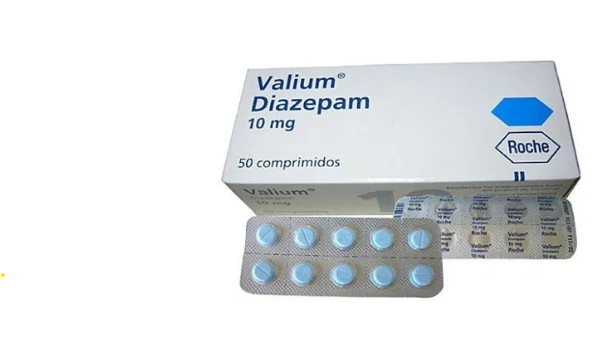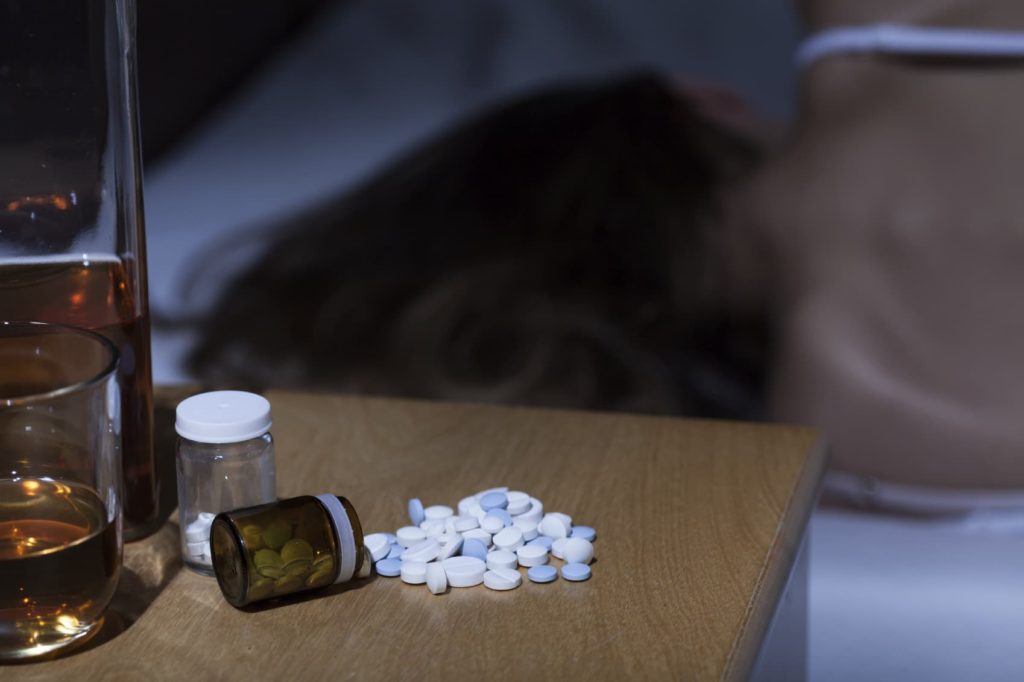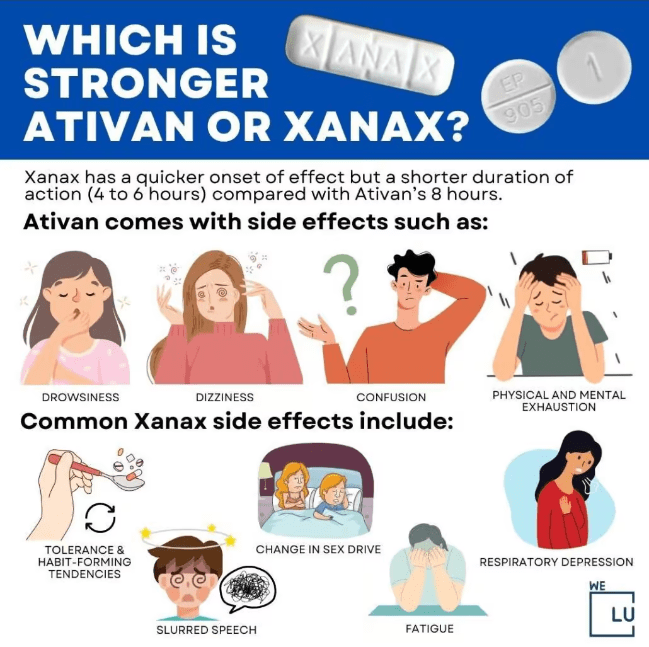Is Valium Addictive? Overview
Valium, a commonly prescribed medication, has long been praised for its effectiveness in managing anxiety and other related disorders. However, its potential for addiction and misuse has also raised significant concerns in the medical community.
In this article, we will explore the question, “Is Valium Addictive?” and explore the signs of addiction, the risks of overdose, and the available treatment options. Additionally, we will touch upon the closely related topic of Diazepam addiction, shedding light on the similarities and distinctions between these benzodiazepines. Whether you are seeking information for yourself or a loved one, this article aims to provide a thorough understanding of the addictive potential of Valium and Diazepam and the resources available for those in need of assistance.
We Level Up offers specialized programs to help you overcome Valium addiction. Our experienced team can guide you through detox, therapy, and recovery.
7 Signs of Valium Addiction
Valium, also known as diazepam, is a prescription medication commonly prescribed to treat anxiety disorders, muscle spasms, and certain seizure disorders. While it can be highly effective in managing these conditions, it also carries the risk of addiction when not used as directed by a healthcare professional. Here are seven signs of Valium addiction:
- Increased Tolerance: Individuals who are becoming addicted to Valium may notice that they need higher doses of the drug to achieve the same therapeutic effects they once experienced at lower doses. This increased tolerance can be a warning sign of addiction.
- Physical Dependence: Over time, the body can become physically dependent on Valium. This means that when someone tries to stop taking the medication or reduce their dosage, they may experience withdrawal symptoms such as anxiety, tremors, sweating, and restlessness.
- Cravings: People addicted to Valium often experience intense cravings for the drug. These cravings can become overwhelming and lead to continued use even when it’s no longer medically necessary.
- Neglecting Responsibilities: As Valium addiction progresses, individuals may start neglecting their responsibilities at work, school, or home. They may become less reliable, miss deadlines, and avoid commitments in favor of using the drug.
- Social Isolation: Valium addiction can lead to social isolation as individuals prioritize drug use over social activities and relationships. They may withdraw from friends and family, leading to strained relationships and a sense of loneliness.
- Risk-Taking Behavior: Valium addiction can lead to risky behavior, such as taking larger doses than prescribed, combining Valium with other substances (e.g., alcohol or opioids), or seeking the drug through illegal means. These behaviors can increase the risk of overdose and legal consequences.
- Loss of Interest: As Valium use takes over a person’s life, they may lose interest in activities and hobbies they once enjoyed. This loss of interest in previously fulfilling pursuits can be a sign that addiction is interfering with their quality of life.
It’s crucial to recognize these signs early and seek help if you or someone you know is struggling with Valium addiction. Addiction is a treatable condition, and there are various treatment options available, including therapy, support groups, and medically supervised detoxification. If you suspect that you or a loved one may have a Valium addiction, it’s essential to reach out to a healthcare professional for guidance and support in addressing this issue.


Skip To:
Learn More:
Is Diazepam Addictive?
Yes, diazepam (Valium) can be addictive when misused or misused. It belongs to the benzodiazepine class of drugs, known for their potential to lead to physical and psychological dependence. The risk of addiction is lower when used as prescribed by a healthcare professional for the intended medical purposes and at the appropriate dosage and duration. However, misuse, higher doses, and extended use can increase the risk of addiction, tolerance, and withdrawal symptoms when attempting to stop its use.
How Addictive is Valium?
Valium, a benzodiazepine medication, can be addictive due to its impact on the brain’s neurotransmitters, particularly gamma-aminobutyric acid (GABA). It creates a calming and sedative effect, which can lead to euphoria when misused. Over time, users may develop tolerance, requiring higher doses for the same effect, and physical dependence, leading to withdrawal symptoms upon discontinuation. Psychological dependence may also develop, as individuals may rely on Valium to cope with stress or anxiety. Misuse, combining Valium with other substances, and underlying factors like genetics or mental health issues can increase the risk of addiction, highlighting the need for responsible use and professional guidance when using Valium.
Ativan Vs Valium Factsheet
Ativan Overview
Ativan (lorazepam) is a fast-acting benzodiazepine for treating anxiety and seizures. It enhances the effects of GABA in the brain, providing calming and sedative effects. It is available in various forms and takes effect within 30-60 minutes. The duration of Ativan’s effects is approximately 6-8 hours. However, caution is advised regarding potential side effects and the risk of dependence. Regular communication with a healthcare provider is essential for safe and effective use.
Ativan Vs Valium Dosage
For Ativan (lorazepam):
- Generalized Anxiety Disorder: The usual adult starting dose is 2 to 3 mg daily, divided into two to three doses.
- Insomnia: The typical adult dose is 2 to 4 mg before bedtime.
- Panic Disorder: The initial adult dose is 0.5 to 1 mg, given two to three times a day. The dosage may be increased if necessary.
For Valium (diazepam):
- Anxiety Disorders: The usual adult dose ranges from 2 to 10 mg, taken twice to four times daily.
- Muscle Spasms: The typical adult dose is 2 to 10 mg, taken twice to four times daily.
- Seizures: The initial adult dose is 2 to 10 mg, taken twice to four daily. The dosage may be adjusted as needed.
- Alcohol Withdrawal: The usual adult dose is 10 mg, taken three to four times during the first 24 hours, followed by reduced dosages as determined by the healthcare professional.
Valium Overview
Valium, also known by its generic name diazepam, is a medication classified as a benzodiazepine. It is primarily prescribed for treating anxiety disorders, muscle spasms, seizures, and alcohol withdrawal symptoms. Valium enhances the effects of a neurotransmitter called gamma-aminobutyric acid (GABA) in the brain, resulting in a calming and sedative effect. It is available in various forms, including tablets, oral, and injectable solutions.
Ativan Vs Valium Side Effects
Common side effects of Ativan may include:
- Drowsiness.
- Dizziness.
- Weakness.
- Fatigue.
- Confusion.
- Slurred speech.
- Lack of coordination.
Common side effects of Valium may include:
- Drowsiness.
- Fatigue.
- Dizziness.
- Muscle weakness.
- Lack of coordination.
- Headache.
- Dry mouth.

Get Your Life Back
Find Hope & Recovery. Get Safe Comfortable Detox, Addiction Rehab & Dual Diagnosis High-Quality Care.
Hotline(844) 597-1011Is Valium Addictive Statistics
Valium, a commonly prescribed medication in the benzodiazepine class, has been a subject of concern due to its potential for addiction and misuse. Understanding the scope of Valium addiction is vital for both healthcare professionals and the general public. While statistics can shed light on the prevalence and trends of Valium addiction, they also underscore the importance of responsible use and proper medical supervision.
- Prevalence of Benzodiazepine Use: According to the National Survey on Drug Use and Health (NSDUH), in 2020, approximately 4.8% of adults in the United States reported past-year use of benzodiazepines, including Valium. This statistic reflects the widespread use of these medications, some of which may lead to addiction.
- Emergency Department Visits: The Substance Abuse and Mental Health Services Administration (SAMHSA) reported that in 2019, there were over 274,000 emergency department visits related to benzodiazepine misuse, with Valium being one of the commonly misused drugs in this category.
- Admissions to Addiction Treatment Centers: Data from addiction treatment centers reveal that benzodiazepines, including Valium, are a factor in admissions. The Treatment Episode Data Set (TEDS) reported that benzodiazepines were involved in 9% of treatment admissions in 2019.
- Overdose Deaths: While not exclusively Valium-related, benzodiazepines contribute to overdose deaths when misused or combined with other substances. The Centers for Disease Control and Prevention (CDC) noted that benzodiazepines were involved in a significant number of overdose deaths in recent years.
57.5 million
In 2019, benzodiazepines were prescribed during approximately 57.5 million office visits, accounting for 4.4% of all visits.
Source: National Ambulatory Medical Care Survey
4.6 million
In 2020, an estimated 4.6 million individuals aged 12 or older reported misusing benzodiazepines.
Source: The National Survey on Drug Use and Health
9,000
Benzodiazepines were involved in approximately 9,000 overdose deaths in the United States in 2019.
Source: National Institute on Drug Abuse
Why Is Valium Addicting?
Valium, also known by its generic name diazepam, is a medication classified as a benzodiazepine. It has the potential to be addictive due to the way it affects the brain and body. Here are some key reasons why Valium can be addicting:
- Brain Chemistry: Valium affects brain neurotransmitters, potentially leading to euphoria.
- Tolerance: Users may need higher doses over time to achieve the same effect.
- Physical Dependence: Withdrawal symptoms can occur when trying to quit.
- Psychological Dependence: People may rely on Valium to cope with emotional challenges.
- Cravings: Intense desires for Valium can drive continued use.
- Escalating Use: Individuals often increase the dose or frequency of Valium.
- Co-Occurring Issues: Valium misuse may be linked to underlying mental health problems.

It’s essential to recognize the potential for Valium addiction and use the medication only as prescribed by a healthcare professional. If you believe you or someone you know may be struggling with Valium addiction, seeking help from a medical or addiction specialist is crucial. Treatment options, including therapy, medication-assisted treatment, and support groups, can assist in managing addiction and promoting recovery.
Valium Addiction Symptoms
Valium addiction, like addiction to other substances, can manifest through a range of physical, psychological, and behavioral symptoms. If you or someone you know is concerned about Valium addiction, it’s important to be aware of these symptoms:
- Increased Tolerance: Over time, individuals may find that they need to take higher doses of Valium to achieve the same effects they once experienced at lower doses. This is a sign that their body has become accustomed to the drug.
- Withdrawal Symptoms: When someone dependent on Valium attempts to reduce or quit using the drug, they may experience withdrawal symptoms, which can include anxiety, restlessness, muscle tension, sweating, and irritability.
- Cravings: Strong and persistent cravings for Valium can be a clear indication of addiction. These cravings may become overwhelming and lead to continued use.
- Loss of Control: Individuals with a Valium addiction may find it difficult to control their use of the drug, often taking it in larger amounts or for longer periods than intended.
- Neglecting Responsibilities: Valium addiction can decrease work, school, or home performance. People may miss work or school, neglect household chores, or fail to fulfill their responsibilities.
- Social Isolation: As the addiction progresses, individuals may withdraw from social activities and relationships, preferring to spend time using Valium.
- Financial Problems: Trying to sustain a Valium addiction can strain finances. Individuals may spend significant money on obtaining the drug, which can lead to financial difficulties.
- Risky Behavior: Some people with Valium addiction engage in risky behaviors, such as taking larger doses than prescribed, mixing Valium with other substances (like alcohol or opioids), or obtaining the drug illegally.
- Health Issues: Long-term Valium use can lead to various health problems, including respiratory issues, memory problems, and increased risk of accidents due to impaired coordination and judgment.
- Loss of Interest: Individuals may lose interest in hobbies and activities they once enjoyed as Valium use precedes other aspects of life.
It’s important to note that addiction is a treatable condition, and seeking help from healthcare professionals and addiction specialists is crucial. Treatment options may include therapy, detoxification, and support groups to help individuals recover from Valium addiction and regain control of their lives. If you or someone you know is experiencing these symptoms, don’t hesitate to reach out for help and support.
Get Help. Get Better. Get Your Life Back.
Searching for Accredited Drug and Alcohol Rehab Centers Near You?
Even if you have failed previously and relapsed, or are in the middle of a difficult crisis, we stand ready to support you. Our trusted behavioral health specialists will not give up on you. When you feel ready or just want someone to speak to about therapy alternatives to change your life call us. Even if we cannot assist you, we will lead you to wherever you can get support. There is no obligation. Call our hotline today.
(844) 597-1011Are Valium Suppositories Addictive?
Valium suppositories, like other forms of Valium (diazepam), can also be addictive if not used as prescribed or if misused. The potential for addiction primarily depends on how the medication is used, the dosage, and the individual’s susceptibility to addiction.
Here are some key points to consider regarding Valium suppositories and addiction:

- Prescription Use: Valium suppositories are typically prescribed by a healthcare professional to manage certain medical conditions, such as acute anxiety, seizures, or muscle spasms. When used as directed and under the supervision of a healthcare provider, the risk of addiction is lower.
- Misuse: Just like other forms of Valium, misuse of Valium suppositories can lead to addiction. Some individuals may misuse suppositories by taking them more frequently, in higher doses, or for longer durations than prescribed. This can increase the risk of developing tolerance and physical dependence.
- Risk Factors: Certain individuals may be more susceptible to addiction due to genetic, psychological, or environmental factors. People with a history of substance abuse or addiction may be at higher risk.
- Withdrawal: Abruptly discontinuing Valium suppositories after regular use can lead to withdrawal symptoms, which can be uncomfortable and may contribute to continued use to avoid these symptoms.
- Cravings: Developing cravings for Valium suppositories is another sign of potential addiction. These cravings can drive individuals to seek out and use the medication even when it’s no longer medically necessary.
Valium Addiction Rate
The rate of Valium addiction can vary widely depending on several factors, including how the drug is used, individual susceptibility to addiction, and the presence of risk factors. It’s important to note that not everyone who uses Valium will become addicted, and many individuals use the medication as prescribed without developing addiction.
Here are some considerations related to the addiction rate of Valium:
- Prescription Use: When Valium is used as prescribed by a healthcare professional to treat specific medical conditions such as anxiety, muscle spasms, or seizures, the risk of addiction is generally lower. Most people who use Valium in this way do not become addicted.
- Misuse and Abuse: The risk of addiction increases when Valium is misused or abused. This includes taking higher doses than prescribed, using it more frequently than recommended, or using it for non-medical reasons, such as to achieve a euphoric or sedative effect.
- Tolerance and Dependence: Prolonged use of Valium can lead to tolerance, where individuals may need higher doses to achieve the same therapeutic effect. This can increase the risk of developing physical dependence and, in turn, addiction.
- Individual Factors: Some individuals are more vulnerable to addiction due to genetic, psychological, or environmental factors. A history of substance abuse or addiction, a family history of addiction, and co-occurring mental health issues can increase the risk.
- Withdrawal and Cravings: The presence of withdrawal symptoms and intense cravings for Valium are signs of addiction and may drive continued use despite negative consequences.
- Polydrug Use: Combining Valium with other substances, such as alcohol or opioids, can significantly increase the risk of addiction and overdose.
It is challenging to provide a specific rate of Valium addiction, as it can vary widely from one population or individual to another. However, it is essential to use Valium only as directed by a healthcare provider and to be aware of the potential for addiction. If you or someone you know is struggling with Valium addiction or substance abuse, seeking help from a healthcare professional or addiction specialist is crucial. Treatment options are available to help individuals overcome addiction and regain control of their lives.
First-class Facilities & Amenities
World-class High-Quality Addiction & Mental Health Rehabilitation Treatment
Rehab Centers TourRenowned Addiction Centers. Serene Private Facilities. Inpatient rehab programs vary.
Addiction Helpline(844) 597-1011Proven recovery success experience, backed by a Team w/ History of:
15+
Years of Unified Experience
100s
5-Star Reviews Across Our Centers
10K
Recovery Success Stories Across Our Network
- Low Patient to Therapist Ratio
- Onsite Medical Detox Center
- Comprehensive Dual-Diagnosis Treatment
- Complimentary Family & Alumni Programs
- Coaching, Recovery & Personal Development Events
Valium Addiction Treatment at We Level Up Treatment Center
Valium addiction is a serious medical condition that requires professional treatment and support. Treatment for Valium addiction typically involves a combination of medical care, psychological therapy, and support to help individuals overcome their addiction and regain control of their lives. Here are some key components of Valium addiction treatment:
- Medical Assessment: The treatment process often begins with a thorough medical assessment by a healthcare provider or addiction specialist. This assessment helps determine the extent of the addiction, any potential co-occurring medical or mental health issues, and the appropriate treatment plan.
- Detoxification (Detox): For individuals who are physically dependent on Valium, a supervised detoxification process may be necessary. Detox helps individuals safely and gradually reduce their Valium intake, manage withdrawal symptoms, and ensure their physical safety during the withdrawal period. Medical supervision is essential to address any complications that may arise.
- Medication-Assisted Treatment (MAT): Healthcare providers may use medications to help individuals manage cravings and withdrawal symptoms during detox and recovery. Medications such as diazepam (a longer-acting benzodiazepine) may be used to taper off Valium while minimizing discomfort.
- Psychological Therapy: Various forms of psychotherapy are effective in treating Valium addiction. Cognitive-behavioral therapy (CBT), dialectical-behavior therapy (DBT), and contingency management are commonly used to help individuals address the underlying causes of their addiction, develop coping skills, and modify unhealthy behaviors.
- Support Groups: Participation in support groups, such as 12-step programs like Narcotics Anonymous (NA), can provide valuable peer support and a sense of community during recovery. These groups offer a structured framework for individuals to share their experiences and receive guidance from others who have faced addiction.
- Individual Counseling: One-on-one counseling with a trained therapist or counselor can help individuals explore their addiction, develop strategies for managing triggers, and work on relapse prevention.
- Holistic and Complementary Therapies: Some treatment programs incorporate holistic and complementary therapies, such as yoga, mindfulness meditation, art therapy, and exercise, to promote overall well-being and stress reduction.
- Family and Social Support: Involving family members and loved ones in the treatment process can be beneficial. Family therapy can help improve communication and address the impact of addiction on relationships.
- Aftercare Planning: Planning for ongoing support and relapse prevention is a crucial aspect of treatment. This may include outpatient counseling, continued participation in support groups, and building a healthy support network.
- Lifestyle Changes: Treatment often involves making positive lifestyle changes, such as addressing co-occurring mental health issues, adopting healthier habits, and finding purposeful activities to replace drug use.
It’s essential for individuals struggling with Valium addiction to seek help from a healthcare professional or addiction specialist. Treatment should be tailored to the individual’s specific needs and circumstances. Recovery from Valium addiction is possible with the right support, commitment, and a comprehensive treatment plan.
Consider Valium addiction treatment at We Level Up Treatment Center for personalized care.
World-class, Accredited, 5-Star Reviewed, Effective Addiction & Mental Health Programs. Complete Behavioral Health Inpatient Rehab, Detox plus Co-occuring Disorders Therapy.
CALL(844) 597-1011End the Addiction Pain. End the Emotional Rollercoaster. Get Your Life Back. Start Drug, Alcohol & Dual Diagnosis Mental Health Treatment Now. Get Free No-obligation Guidance by Substance Abuse Specialists Who Understand Addiction & Mental Health Recovery & Know How to Help.
Popular FAQs about Is Valium Addictive
-
How Long Does It Take to Get Addicted to Valium?
The timeframe for developing an addiction to Valium can vary, and it often occurs after a few weeks to several months of regular use, especially when taken in higher doses or more frequently than prescribed.
-
Is Xanax More Addictive Than Valium?
The timeframe for developing an addiction to Valium can vary, and it often occurs after a few weeks to several months of regular use, especially when taken in higher doses or more frequently than prescribed.
Experience Transformative Recovery at the We Level Up Treatment Center.
See our authentic success stories. Get inspired. Get the help you deserve.
Experience Transformative Recovery at We Level Up Treatment Centers.
See our authentic success stories. Get inspired. Get the help you deserve.
Start a New Life
Begin with a free call to an addiction & behavioral health treatment advisor. Learn more about our dual-diagnosis programs. The We Level Up Treatment Center Network delivers recovery programs that vary by each treatment facility. Call to learn more.
- Personalized Care
- Caring Accountable Staff
- World-class Amenities
- Licensed & Accredited
- Renowned w/ 100s 5-Star Reviews
We’ll Call You
Powerful Video Overcoming Prescription Drugs Abuse like Gabapentin Addiction
Jen’s Addiction Recovery Story
Reclaiming My Life: Overcoming Addiction and Rebuilding Relationships
I longed for my old life, but addiction had turned me into a mere shell of myself. I yearned to regain the trust of my loved ones, especially my children and family. It all started innocently enough, with a car accident followed by getting caught up in the murky world of prescription medication. Before I knew it, I was trapped in a fog of addiction. My mind justified it, telling me it was okay because a doctor prescribed it.
Little did I realize, I was spiraling down a dangerous path. Thankfully, Level Up came into my life, providing support for my family and nurturing my personal growth. When I first walked through their doors, I was filled with fear and intimidation. However, their guidance and teachings have empowered me to discover my true self. And now, receiving a midday call from my twenty-one-year-old daughter, simply saying “I love you, Mom,” is nothing short of incredible.
Jen’s Addiction Recovery Testimonial
Search Is Valium Addictive We Level Up Alcohol Poisoning Detox, Mental Health Topics & Resources
Sources
- National Institute on Drug Abuse (NIDA) – Benzodiazepines: https://www.drugabuse.gov/drug-topics/opioids/benzodiazepines
- National Institute of Mental Health (NIMH) – Anxiety Disorders: https://www.nimh.nih.gov/health/topics/anxiety-disorders/index.shtml
- FDA – Valium Medication Guide: https://www.accessdata.fda.gov/drugsatfda_docs/label/2016/013263s094lbl.pdf
- Substance Abuse and Mental Health Services Administration (SAMHSA) – Behavioral Health Treatment Services Locator: https://findtreatment.samhsa.gov/
- National Library of Medicine (NLM) – Ativan Drug Information: https://pubchem.ncbi.nlm.nih.gov/compound/Lorazepam
- NLM – Valium Drug Information: https://pubchem.ncbi.nlm.nih.gov/compound/Diazepam
- U.S. Department of Health and Human Services (HHS) – MentalHealth.gov: https://www.mentalhealth.gov/
- MedlinePlus – Lorazepam Information: https://medlineplus.gov/druginfo/meds/a682053.html
- FDA – Valium Medication Guide: Is Valium Addicting https://www.accessdata.fda.gov/drugsatfda_docs/label/2016/013263s094lbl.pdf
- Substance Abuse and Mental Health Services Administration (SAMHSA) – Behavioral Health Treatment Services Locator: https://findtreatment.samhsa.gov/ Is Valium Addictive





